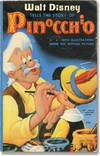
The Satires of Juvenalis.
by William Gifford
- Used
- very good
- Hardcover
- first
- Condition
- Very good
- Seller
-
Scarborough , North Yorkshire, United Kingdom
Payment Methods Accepted
About This Item
Tan leather binding with gilt title, banding and decoration on the spine.
A nice clean first edition which is receiving some remedial work to its spine name plate The first edition of William Gifford's (1756-1826) respected and much reprinted translation of Juvenal's Satires, which also reveals the unlikely yet true autobiographical account of his journey from Devonian ploughboy and ship-hand to classical education at Oxford and the London literary scene. "The life of Juvenal" and "An essay on the Roman satirists" preceding text. With engraved frontispiece portrait of the translator. Subjects: Juvenal; Translations into English. Verse satire, Latin (Medieval and modern) Translations into English. Satire, Latin; Early works to 1800. Latin poetry Translations into English; Early works to 1800. Verse satire, Latin Translations into English; Early works. Decimus Junius Juvenalis, known in English as Juvenal, was a Roman poet active in the late first and early second century AD. He is the author of the collection of satirical poems known as the Satires. The details of Juvenal's life are unclear, although references within his text to known persons of the late first and early second centuries AD fix his earliest date of composition. One recent scholar argues that his first book was published in 100 or 101. A reference to a political figure dates his fifth and final surviving book to sometime after 127. Juvenal wrote at least 16 poems in the verse form dactylic hexameter. These poems cover a range of Roman topics. This follows Lucilius—the originator of the Roman satire genre, and it fits within a poetic tradition that also includes Horace and Persius. The Satires are a vital source for the study of ancient Rome from a number of perspectives, although their comic mode of expression makes it problematic to accept the content as strictly factual. At first glance the Satires could be read as a critique of Rome. That critique may have ensured their preservation by the Christian monastic scriptoria although the majority of ancient texts did not survive. While Juvenal's mode of satire has been noted from antiquity for its wrathful scorn toward all representatives of social deviance, some politically progressive scholars such as, W. S. Anderson and later S. M. Braund, have attempted to defend his work as that of a rhetorical persona (mask), taken up by the author to critique the very attitudes he appears to be exhibiting in his works. In any case it would be an error to read the Satires as a literal account of normal Roman life and thought in the late first and early second centuries AD, just as it would be an error to give credence to every slander recorded in Suetonius against the members of prior imperial dynasties. Themes similar to those of the Satires are present in authors spanning the period of the late Roman Republic and early empire ranging from Cicero and Catullus to Martial and Tacitus; similarly, the stylistics of Juvenal's text fall within the range of post-Augustan literature, as represented by Persius, Statius, and Petronius. Juvenal's Satires, giving several accounts of Jewish life in first-century Rome, have been regarded by scholars, such as J. Juster and, more recently, Peter Nahon, as a valuable source about early Judaism. William Gifford (April 1756 – 31 December 1826) was an English critic, editor, and poet, famous as a satirist and controversialist. Gifford was born in Ashburton, Devon, to Edward Gifford and Elizabeth Cain. His father, a glazier and house painter, had run away as a youth with vagabond Bampfylde Moore Carew, and he remained a carouser throughout his life. He died when William was thirteen; his mother died less than a year later. He was left in the care of a godfather who treated him with little consistency. Gifford was sent in turn to work as a plough boy, a ship's boy, student, and cobbler's apprentice. Of these, Gifford cared only for the life of a student, and he continued to write verses as he learned the cobbler's trade. Gifford's fortunes changed when his first poetical efforts came to the attention of an Ashburton surgeon, William Cookesley. Cookesley raised a subscription to have the boy's apprenticeship bought out and he returned to school. By 1779 he had entered Exeter College, Oxford as a bible clerk (that is, a servitor), matriculating on 16 February 1779 and graduating B.A. 10 October 1782. Already while at Oxford, he had begun work on his translation of Juvenal. After graduation, he earned the patronage of Lord Grosvenor. He spent most of the ensuing decade as tutor to Grosvenor's son. In course of time he produced his first poem, The Baviad (1791), a satire directed against the Della Cruscans, a group of sentimental and to Gifford's conservative mentality dangerously radical poets. The Baviad is a 'paraphrastic' (that is, according to the OED, a work having 'the nature of a paraphrase') 'imitation' of the first satire of the Roman poet Persius (34–62 A.D.). Persius's satire deals with the degenerate state of contemporary literature. Both literature and literary taste have become corrupt, and for him as for Gifford, poetic corruption mirrors political corruption: the decline in modern poetry reflects the decline of modern morals. The Baviad was followed by another satire, The Maeviad (1795), against some minor dramatists. His last effort in this line was his Epistle to Peter Pindar (Dr. John Wolcot) (1800), inspired by personal enmity, which evoked a reply, A Cut at a Cobbler and a public letter in which Wolcot threatened to horse-whip Gifford. Gifford and Wolcot met in Wright's bookshop in Piccadilly on 18 August 1800. According to most contemporary accounts, Wolcot attempted to cudgel Gifford; however, the diminutive but younger satirist wrested his stick from him and proceeded to lay about Wolcot, forcing him to flee down Piccadilly. The earlier satirical writings had established Gifford as a keen, even ferocious critic, and he was appointed in 1797 editor of the Anti-Jacobin, which Canning and his friends had just started, and later of the Quarterly Review (1809–24). As editor of the Anti-Jacobin, Gifford published the pro-Tory satires and parodies of George Canning, John Hookham Frere, and George Ellis. Gifford edited The Poetry of the Anti-Jacobin in 1799. By the turn of the century, Gifford's efforts as a poet were all but over, and he spent the rest of his career as an editor, scholar, and occasional critic. From 1809 to 1824, he edited the Quarterly Review; in this capacity, he became an icon of Tory journalism. Though he contributed rarely, his style marked the periodical in all respects. Gifford was popularly supposed to have penned the attack on Keats's 'Endymion' (the review was actually by John Wilson Croker), which Percy Bysshe Shelley and Lord Byron erroneously blamed for bringing about the death of the poet, 'snuffed out', in Byron's phrase, 'by an article'. Contributors to the review included Charles Lamb, Walter Scott, and Robert Southey; the last had been among the poets satirised in the previous decade by the Anti-Jacobin. His work as translator and editor was only slightly less contentious than his work as editor. The translation of Juvenal, published in 1802 earned high praise. Even William Hazlitt, elsewhere a frank enemy, praised the preface, in which Gifford describes his difficult childhood. This edition remained in print for the next century. Near the end of his life, he produced a translation of Persius. As an editor, Gifford shared the age's interest in Renaissance drama. He brought out editions of Massinger, Ben Jonson, and Ford. Gifford gave up the editorship of the Quarterly in 1824, only two years before his own death; he was succeeded in that position by John Taylor Coleridge. John Gibson Lockhart took over in 1826. Gifford never married, although he had a close, probably Platonic, relationship with Ann Davies, a servant; she died in 1815. His salary with the review amounted to nine hundred pounds a year by 1818, and his friendship with various wealthy Tories further insulated him from want. Indeed, when he died his will was proved at 25,000 pounds, the majority of which he bequeathed to the son of Cookesley, his first benefactor. As a poet, Gifford is commonly judged to have reached his peak with the Baviad. In this work, which led to the more or less complete eclipse of the Della Cruscans, his lifelong tendency to unmoderated invective was restrained (though not completely) to produce a work that effectively satirised the Della Cruscan's sentimentality and tendency to absurd mutual compliment. In later work, his interest in vituperation is judged to have overwhelmed any element of wit. Still, Byron named him the best of the age's satirists. His satires are in heroic couplets after the manner of Alexander Pope; assorted other verse, little of it memorable, adopts the highly mannered style of the late eighteenth century. As a critic he had acuteness; but he was one-sided, prejudiced, and savagely bitter, and much more influenced in his judgments by the political opinions than by the literary merits of his victims. These were traits he shared with his querulous and factional time; however, Gifford was among the most virulent practitioners of the art of partisan review. As an editor, he played an important role in the revival of Jonson's reputation after a period of neglect. His satirical poems are included in volume 4 of British Satire 1785–1840, 5 vols (2003), ed. John Strachan. The Poetry of the Anti-Jacobin was edited by Graeme Stones in 1999 (Pickering and Chatto). Everyman publishes Gifford's Juvenal. Kathryn Sutherland, professor of the Faculty of English Language and Literature at Oxford University, has studied the manuscript of a discarded chapter of Jane Austen's Persuasion and has conjectured that much of Austen's polished style is probably the result of editorial tidying by Gifford, who worked for the publisher John Murray. There is no direct evidence that Gifford edited the work, however.
Reviews
(Log in or Create an Account first!)
Details
- Bookseller
- Martin Frost
(GB)
- Bookseller's Inventory #
- FB3512 /1A
- Title
- The Satires of Juvenalis.
- Author
- William Gifford
- Format/Binding
- Leather binding
- Book Condition
- Used - Very good
- Quantity Available
- 1
- Edition
- First edition
- Binding
- Hardcover
- Publisher
- G & W Nichol.
- Place of Publication
- London
- Date Published
- 1802
- Size
- 23 x28 x5cm
- Weight
- 0.00 lbs
Terms of Sale
Martin Frost
About the Seller
Martin Frost
About Martin Frost
Glossary
Some terminology that may be used in this description includes:
- Plate
- Full page illustration or photograph. Plates are printed separately from the text of the book, and bound in at production. I.e.,...
- Gilt
- The decorative application of gold or gold coloring to a portion of a book on the spine, edges of the text block, or an inlay in...
- First Edition
- In book collecting, the first edition is the earliest published form of a book. A book may have more than one first edition in...
- Spine
- The outer portion of a book which covers the actual binding. The spine usually faces outward when a book is placed on a shelf....
Frequently asked questions
Also Recommended
-

Save 10% on every purchase!
Join the Bibliophiles’ Club and start saving 10% on every book.
$29.95 / Year







